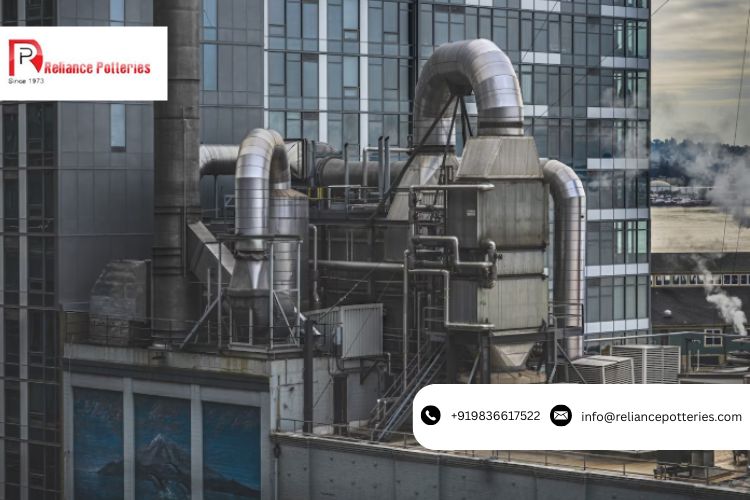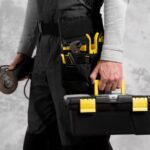Ever wondered what keeps India’s vast power grid resilient amid heat, monsoons, and dust? Behind the scenes, polymer insulators do the heavy lifting — ensuring energy transmission runs smoothly and safely across the country. Today, let’s explore the best insulator manufacturers in india who have mastered the art of innovation and reliability in this crucial industry.
Why Polymer Insulators Are Reshaping India’s Power Sector
Over the last decade, polymer insulators have replaced traditional porcelain and glass insulators across most high-voltage networks. The reasons? They’re lighter, more durable, resistant to vandalism, and can withstand India’s unpredictable climate. With the government’s ambitious “Power for All” mission, demand for advanced insulator technology is skyrocketing — pushing manufacturers to innovate beyond conventional designs.
Leading Polymer Insulator Manufacturers in India
India’s manufacturing base for electrical components has seen a surge in quality and exports. Here are some standout names recognized for their quality, technical innovation, and compliance with international standards:
- Reliance Potteries: A legacy manufacturer excelling in high-voltage polymer and ceramic solutions. Known for consistent R&D investment and customized product offerings.
- Aditya Birla Insulators: One of India’s largest producers of electrical insulators, delivering globally trusted polymer units for overhead transmission lines.
- Hubbell Power Systems India: A top-tier player blending U.S. engineering standards with Indian manufacturing efficiency.
- ABB India: A global technology leader contributing smart insulator designs for modern grids and renewable energy applications.
What Sets India’s Top Insulator Manufacturers Apart?
Beyond production capacity, what truly distinguishes India’s polymer insulator makers is their ability to adapt. Whether it’s integrating composite materials or applying advanced hydrophobic coatings, these manufacturers ensure their products meet the most rigorous performance expectations.
Key Innovations Driving the Sector
- Advanced Material Engineering: Use of high-grade silicone rubber ensures better pollution resistance and mechanical strength.
- Precision Molding & Testing: Computer-aided design (CAD) and type tests in ISO-certified facilities ensure consistent quality.
- Custom Solutions: Tailor-made insulators for ESPs, railways, and renewable energy installations.
Among the most advanced in this niche, the ESP Insulators Manufacturer in India category has seen growing adoption. These specialized insulators are crucial for electrostatic precipitators — equipment widely used in power plants and cement industries for pollution control. Their ability to maintain performance under extreme temperature variations has made them indispensable in emission-reduction setups.
Applications Across Industries
Polymer insulators are now integral across several domains, not just power transmission:
- Renewable Energy: Solar and wind power systems use high-durability insulators for long-term outdoor exposure.
- Industrial ESP Systems: Essential for maintaining efficiency and safety in emission control operations.
- Rail Electrification: Ensures uninterrupted current flow and operational reliability.
Supporting this ecosystem, the Solid Core Insulators Supplier segment provides high-compression strength products ideal for substation switchgear and bus-bar applications. These insulators are known for excellent dielectric performance and mechanical stability — critical for India’s ever-expanding power infrastructure.
Trusted Components for Reliable Power Systems
High-quality insulators are the backbone of safe power distribution. Leading companies like the Drive Insulators Manufacturer and Anti Sway Insulator Manufacturer in India ensure that industries relying on ESP systems, such as steel and cement plants, can maintain operational safety and efficiency. These components prevent vibration damage, enable precision rapping operations, and enhance equipment life cycles — all vital for reducing downtime and operational costs.
Industry Insights: Quality Standards and Export Outlook
According to recent reports from India’s Ministry of Power (powermin.gov.in), the domestic insulator market is expected to grow at a CAGR of 8–10% through 2030. Export potential is equally strong, particularly to Southeast Asia and Africa. Buyers are increasingly prioritizing certifications like IEC, ANSI, and IS compliance — benchmarks that many Indian manufacturers already meet or exceed.
Frequently Asked Questions (FAQ)
What are the advantages of polymer insulators over ceramic ones?
Polymer insulators are lightweight, resistant to impact, and less prone to breakage. They also perform better in polluted and coastal environments.
Which industries use ESP insulators?
They are primarily used in cement, steel, thermal power, and paper manufacturing plants to help control particulate emissions effectively.
How do manufacturers ensure insulator quality?
Manufacturers conduct rigorous electrical, mechanical, and environmental tests following IS/IEC standards to ensure product reliability.
Are Indian insulator manufacturers globally competitive?
Yes. With improved material science and advanced production capabilities, India’s manufacturers now compete on par with leading international brands.
Also Read : What Is the Importance of Insulators in the Operation of Electric Vehicles?
Final Thoughts
India’s polymer insulator manufacturing sector represents more than just engineering excellence — it’s a testament to the country’s evolving industrial capability. As the power and infrastructure sectors expand, these manufacturers will continue to anchor India’s progress with quality, innovation, and sustainability at their core.
Blog Development Credits:
This article was ideated by Ritesh Banerjee, and developed with expert research inputs through AI-assisted platforms such as ChatGPT, Google Gemini, and Copilot. Final SEO refinement was performed by Reliance Potteries.



